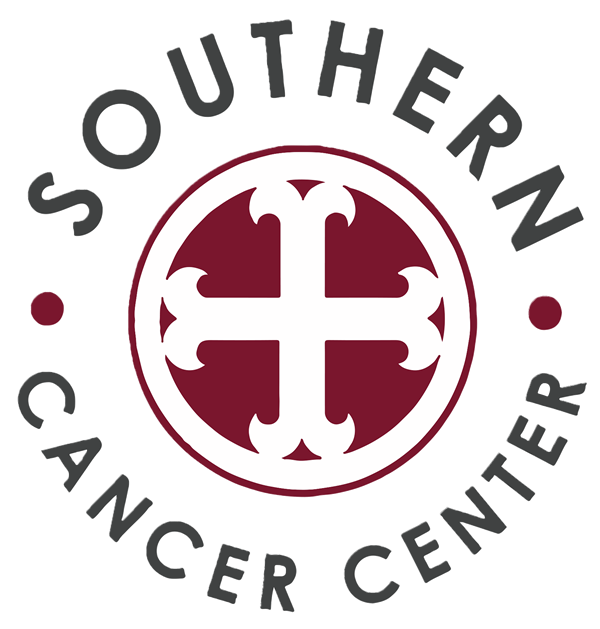
Breast cancer is the most commonly diagnosed cancer in Black women. And while Black women have an overall lower breast cancer incidence rate than white women, Black women under the age of 40 are more likely to be diagnosed with breast cancer than white women in the same age group.
In recent decades, increased awareness about breast cancer, improved screening and more effective treatments have led to better breast cancer outcomes, but there is still a disparity for Black women compared to other racial and ethnic groups.
“There are multiple social and biological factors that lead to breast cancer disparities for Black women,” said Dr. Lindsey Beakley, breast surgical oncologist at Southern Cancer Center. “It’s important to understand these so we can accurately address breast cancer risk as we make further advancements in prevention and treatment.”
Barriers to Healthcare Access Increase Breast Cancer Risk for Black Women
Black women are statistically more likely than their white counterparts to have inadequate access to healthcare facilities and health insurance which can have an impact on breast cancer risk. Many studies have shown that improving access to care can reduce breast cancer risk:
- A 2017 study published in the Journal of Clinical Oncology found that access to private health insurance had a significant impact on the outcomes of Black women diagnosed with early stage breast cancer.
- A 2023 study published by the Journal of the National Cancer Institute found that in areas where healthcare coverage was expanded to low-income Americans, there was no significant outcome gap between racial and ethnic groups of stage 4 breast cancer patients.
- A 2023 study published in Cureus looked at reducing the disparities in breast cancer screening between racial and ethnic groups, and found that successful intervention programs worked to remove barriers to healthcare access.
Black women are more likely to have diabetes, heart disease, obesity and other conditions that are known risk factors for breast cancer. Increased access to healthcare can help manage these conditions, which can affect breast cancer risk.
Black Women are More Likely to Be Diagnosed with Triple Negative Breast Cancer
Black women are twice as likely as women of other racial and ethnic backgrounds to be diagnosed with more aggressive subtypes of breast cancer, including triple negative breast cancer. This type of breast cancer is more likely to occur in women under the age of 40, before regular screening is recommended. This means these cancers are often found at a more advanced stage.
Triple negative breast cancer is also associated with a higher risk of subsequent malignancies, which means Black breast cancer survivors have a higher likelihood of developing other cancers.
Black women are also more likely to develop inflammatory breast cancer, which is a rare type of breast cancer that can be aggressive.
Addressing disparities in genetic factors between different racial groups is a crucial step towards creating health equity and better outcomes for Black women.
Black Women Are Underrepresented in Breast Cancer Clinical Trials
Scientific advances in recent decades have led to significant strides forward in effective breast cancer treatment. Increased used of systemic therapies and other advanced treatments have led to a dramatic increase in breast cancer survivorship.
However, these advances have not benefited women equally across racial and ethnic groups. Currently, non-white women represent between 10-15 percent of breast cancer clinical trial participants.
Efforts to engage Black women in clinical trials and focusing research on health differences between Black women and other racial and ethnic groups could play a major role in addressing the healthcare gap.
Early Detection is Key to Health Equity for Black Women
Because Black women are more likely to develop more aggressive subtypes of cancer at a younger age, appropriate screening is even more crucial. It is recommended that all women get screening appropriate for their individual risk so that cancer can be detected and treated as early as possible.
A study published in JAMA Network Open looking at breast cancer outcomes between 2011 and 2020 supported a race-adapted approach to breast cancer screening to address risk of early-onset breast cancer and suggests Black women should begin screening in their 40s.
Recent changes in screening recommendations have also reflected this. In 2023, the United States Preventive Task Force changed its guidelines to lower the age women of average risk should begin regular mammogram screenings to 40. Additionally, some experts recommend Black women get a breast cancer risk assessment between 25 and 30 so they can begin screening at an early age if needed. All women should follow recommended guidelines for their risk level. Current recommendations include:
- Women between the ages of 40 and 74 start mammogram screenings annually.
- Women 75 and over should continue with mammograms as long as their overall health is good, and they have a life expectancy of 10 or more years.
- Women with a higher-than-average risk may be encouraged to begin annual mammograms between 25 and 30, or have additional screening with MRI surveillance.
For more information about breast cancer screening, click HERE to read our screening blog.
Women should also look for any abnormalities in their breasts. While breast self-exams should not replace regular clinical screening, if you notice any changes on your breast, contact your healthcare provider.
Learn More About Breast Cancer Screening and Treatment
If you have questions about breast cancer screening, your mammogram report, or any risk factors you may have, please consult your physician. They can help you determine the most appropriate screening guidelines for you.
For those at a higher risk of developing breast cancer, learn more information about Southern Cancer Center’s High Risk Breast Cancer Program HERE.

